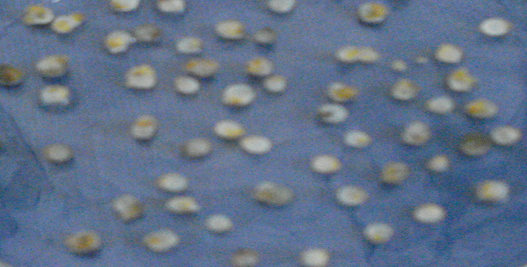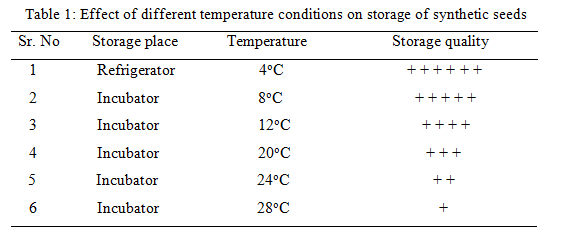Sugarcane (Saccharum officinarum L.) is one of the most important cash crop of the world. Pakistan is the fifth largest sugarcane growing country of the world but our yield per hectare of this crop is lowest than all over the world. There are many reasons for that. The most important of which is the non availability of disease free elite stock for seeding and lack of implementation of advance technologies in sugarcane propagation, development of new seed varieties and maintenance of current promising varieties. In Pakistan sugarcane is propagated by vegetative means and flowering has long been a seriously problem in sugarcane propagation and breeding. Although there are some areas where flowering occur but due to non synchronization of flowering breeding is not possible. Though seeds are produced but mostly they are not fertile. Synthetic seed production in this context thus appears a new approach in sugarcane propagation and maintaining disease free stock.
Three type of explants (leaf, shoot apical meristem and pith) were taken from sugarcane plants and were inoculated to obtain somatic embryos.
Encapsulation of somatic embryos
For encapsulation gel matrix of sodium alginate solution was prepared in the range of 1%, 2%, 2.5%, 3% and 4% in MS medium and calcium chloride solution, as complexing agent was prepared in the range of 100mM, 150mM and 200mM in distilled water. Both the gel matrix and complexing agent (calcium chloride) were autoclaved. Encapsulation was initiated by dropping sodium alginate solution on somatic embryos and then dropping them in the calcium chloride solution so that each drop contained single somatic embryo. The beads were kept for 5 to 25 minutes in the calcium chloride solution for complete polymerization of alginate solution. Finally, these beads were washed three times with sterile distilled water to remove all the traces of calcium chloride. The entire process of encapsulation was carried out in sterile conditions in laminar air flow cabinet.

Synthetic seeds of sugarcane
Storage of encapsulated somatic embryos
Encapsulated somatic embryos or synthetic seeds were stored at 4oC, 8oC, 12oC, 20oC, 24oC, 28oC in sterile distilled water in refrigerator for the duration of 0, 15, 30, 45 and 60 days.
Effect of different temperature conditions on storage of synthetic seeds
Synthetic seeds were stored at different places having different temperature to find the most optimal temperature for storage of synthetic seeds. The storage quality of synthetic seeds was most suitable and appropriate at 4°C temperature and synthetic seeds remained viable at this temperature (Table 1). The storage quality of synthetic seed was good at 8°C temperature. By increasing temperature (12°C - 28°C) the storage quality of synthetic seed was reduced (Table 1).

Pretreatment and germination of synthetic seeds
Before germination, stored synthetic seeds were treated with 200mM KNO3 with gentle shaking for 5 minutes. After rinsing with sterile distilled water they were treated with 1.0 mgl-1 of GA3 for 2 minutes. Its performance was compared with normal synthetic seeds without pretreatment. For germination, synthetic seeds were transferred to the test tubes having MS medium with and without growth regulators. The pH of the medium was adjusted to 5.7-5.8. Cultures were maintained at 25°C with photoperiod of 16/8 h light/dark. The synthetic seeds treated with KNO3 germinated earlier than seeds without pretreatment with KNO3. It took 30 days for sprouting when synthetic seeds were not subjected to pretreatment and germinate within two week when treated with 200mM KNO3.
About Author / Additional Info:
PhD Scholar